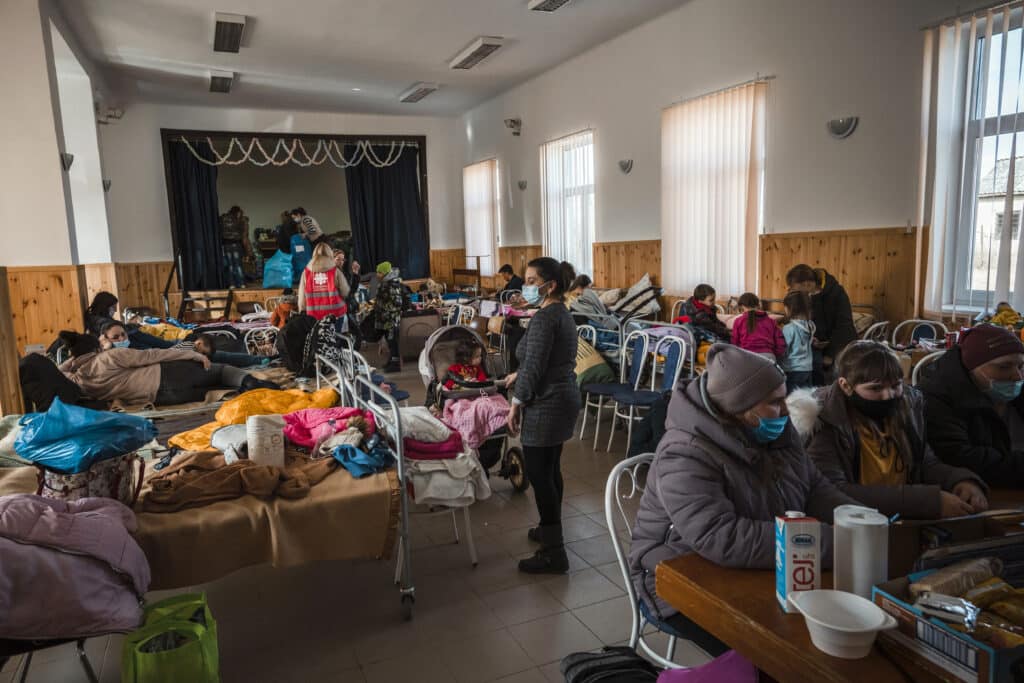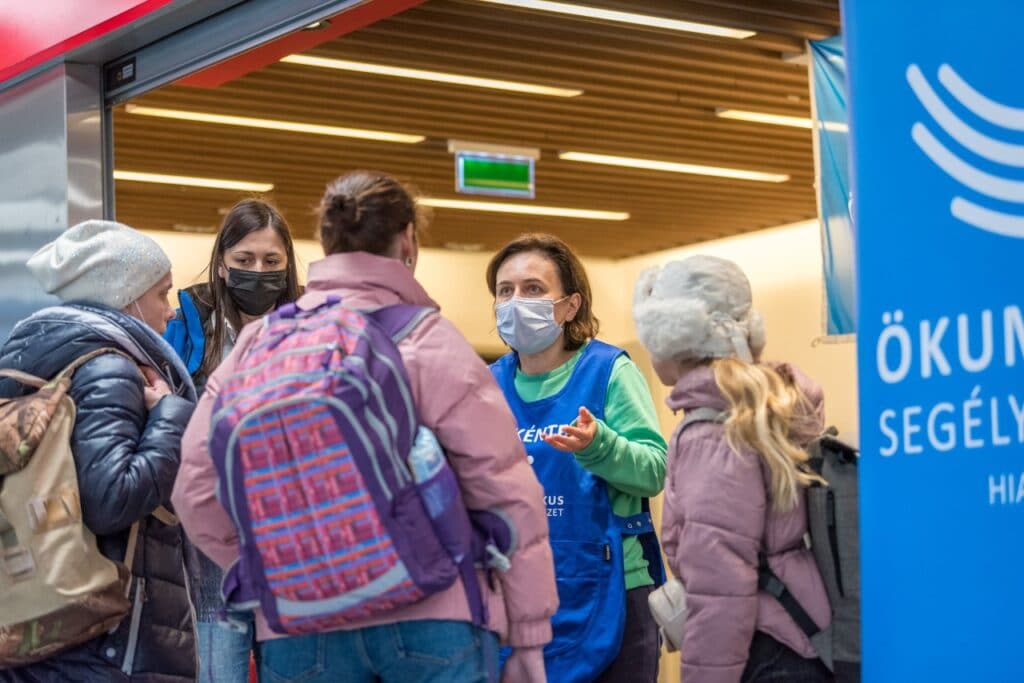Syrian Crisis Poses Challenges in Palestinian Refugee Camps – World Council of Churches
18 May 2016, originally posted here
*By Claus Grue
During the 29 years Virgine Nasrawi has worked in the Talbiah refugee camp, located 40 kilometers south of Amman, the Jordanian capital, she has witnessed many changes.
And the sudden influx of refugees from neighbouring Syria, caused by the devastating civil war in that country, is the most dramatic.
Talbiah is a small camp by current standards, housing 8,000 Palestinians and 3,000 Syrians.
The Syrian conflict has put further strains on its already scarce resources.
Ms Nasrawi, who is formally retired, comes to the camp almost every day to share her passion, commitment and experience. She comes because she loves to help and because compassion flows through her veins.
Everyone seems to know her and she is always there to lend a helping hand in the different vocational training programmes run by the DSPR (Department of Service to Palestinian Refugees) of the Middle East Council of Churches in the camp.
“It brings me such joy to feel that my contribution makes a positive difference in the lives of so many people”, says Nasrawi.
The camp bustles with activity and rooms are filled with predominantly Muslim women and young girls engaged in vocational activities. In one room clothes are recycled and in another pickles are canned. Children run around and everybody seems happy and full of joy.
Over the years Nasrawi, who is an Orthodox Christian, has learned how to deal with people who have fled from their homes, how to keep their spirits up and how to develop their vocational skills.
“She is like a mother to all these people and it means a lot for us to have her around” says Fares Swais, executive director at the Near East Council of Churches (NECC) in Amman, which is a part of the DSPR.
He mentions a lack of financial resources as the main obstacle and the cultural differences between Syrian and Palestinian refugees as one of the main challenges.
“Syrians often don’t allow women to leave the house for work or education. We try to help them to adapt to the society here”, says Mr Swais.
“Through interaction with Syrians, we are reminded of our own course. It is our duty to help and somehow we will cope with the increasing needs the Syrian refugees crisis entails.”
Empowering refugees is a prime concern for DSPR and the focus in the camp is on providing income generating activities.
At Tabiah Vocational Training Center 42 women graduated in the past two years from programs in sewing, embroidery and trico. Health education training is another activity, where 30 housewives currently are enrolled.
Furthermore, comprehensive loan programmes for students and business start-ups are offered.
“Long term self-sufficiency must always be the goal”, says Swais.
DSPR has built a strong local network over the years and enjoys goodwill in the communities it serves. Contacts with other non-government organizations, as well as the Jordanian Government, are frequent and relations with the media are good.
“We usually get our messages across through news agencies, but we need to improve our communications and be more consistent. It is critical that refugees feel that we share their needs and that we care about them,” says the MECC’s chairperson Dr Farah Atallah.
Capacity building in communications and training of trainers is a priority in order to ensure visibility and understanding of the work the DSPR is doing.
Today, 70 percent of the Palestinian refugees live outside the camp and are more or less integrated in society.
Jordan is unique in the sense that no other country hosts such a high proportion of refugees. There are two million registered Palestinian refugees and around 650,000 Syrian refugees in the country.
*Claus Grue is communication consultant for the World Council of Churches.
Related News
Religious advocates applaud as court rules against policy that blocked asylum seekers
A federal court has overruled a policy that the U.S. has used to turn back hundreds of...
Read MoreUkraine, Haiti, Afghanistan Anniversaries
All these anniversaries were marked during the last two weeks of August 2022. the six-month...
Read MoreUCC appeal helps provide safe spaces for Ukraine women and children
Most refugees from the war in Ukraine are women with children whose husbands and fathers were...
Read More


